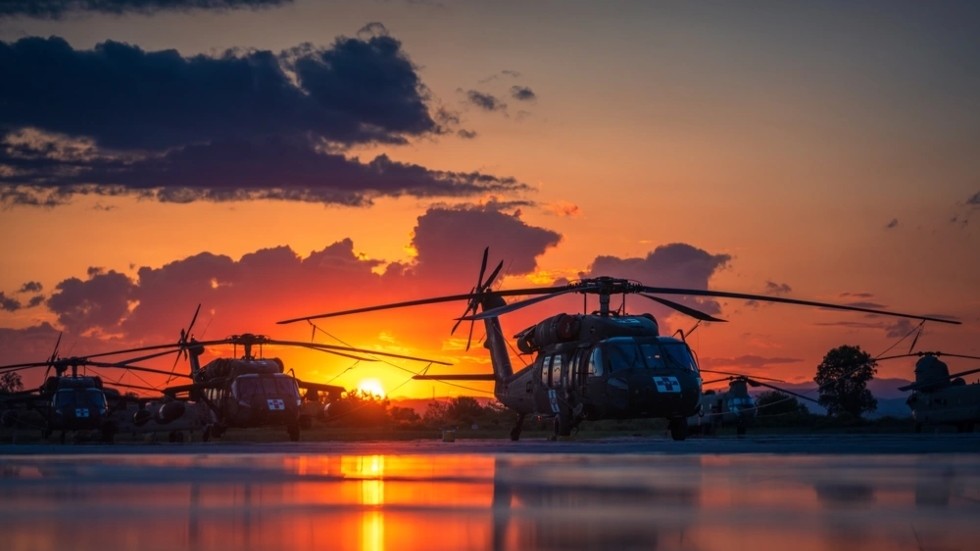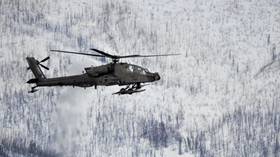
Twelve soldiers have been killed in accidents over the last month, including a fatal crash earlier this week

FILE PHOTO: US Army helicopters are seen parked at Bezmer Airbase in Bulgaria, May 14, 2021. © US Army / Maj. Robert Fellingham
The US Army has ordered non-critical military flights to be grounded after lethal helicopter crashes in Alaska and Kentucky. The Pentagon said all aviators, including active-duty troops, must undergo additional safety training.
The military branch announced the move on Friday, saying the order is effective immediately for all Army personnel excluding those “participating in critical missions.”
“The safety of our aviators is our top priority, and this stand down is an important step to make certain we are doing everything possible to prevent accidents and protect our personnel,” Army Chief of Staff James McConville said.

The ground stop was prompted by a string of recent mishaps involving Army aircraft. On Thursday, two AH-64 Apache helicopters crashed near Healy, Alaska following a training mission, leaving three soldiers dead and another wounded. The military has not yet determined the cause of the incident, but investigators were expected to arrive at the scene of the crash on Saturday.
Nine Army troops from the 101st Airborne Division were also killed in a separate training accident in Kentucky last month. During a nighttime mission, two UH-60 Blackhawk helicopters collided in midair while flying in formation, leaving no survivors.
Yet another helicopter wreck took place in Alaska last February, also involving an Apache gunship, which resulted in injuries to soldiers and damage to the aircraft but no fatalities.
Though the lethal crashes are still under investigation, the Army said “there is no indication of any pattern between the two mishaps.”
To avoid incidents going forward, active-duty troops are set to receive new safety training between May 1 and 5, while National Guard and Reserve members will have until May 31 to complete the course, according to Army spokesman Lt. Col. Terence Kelley.




